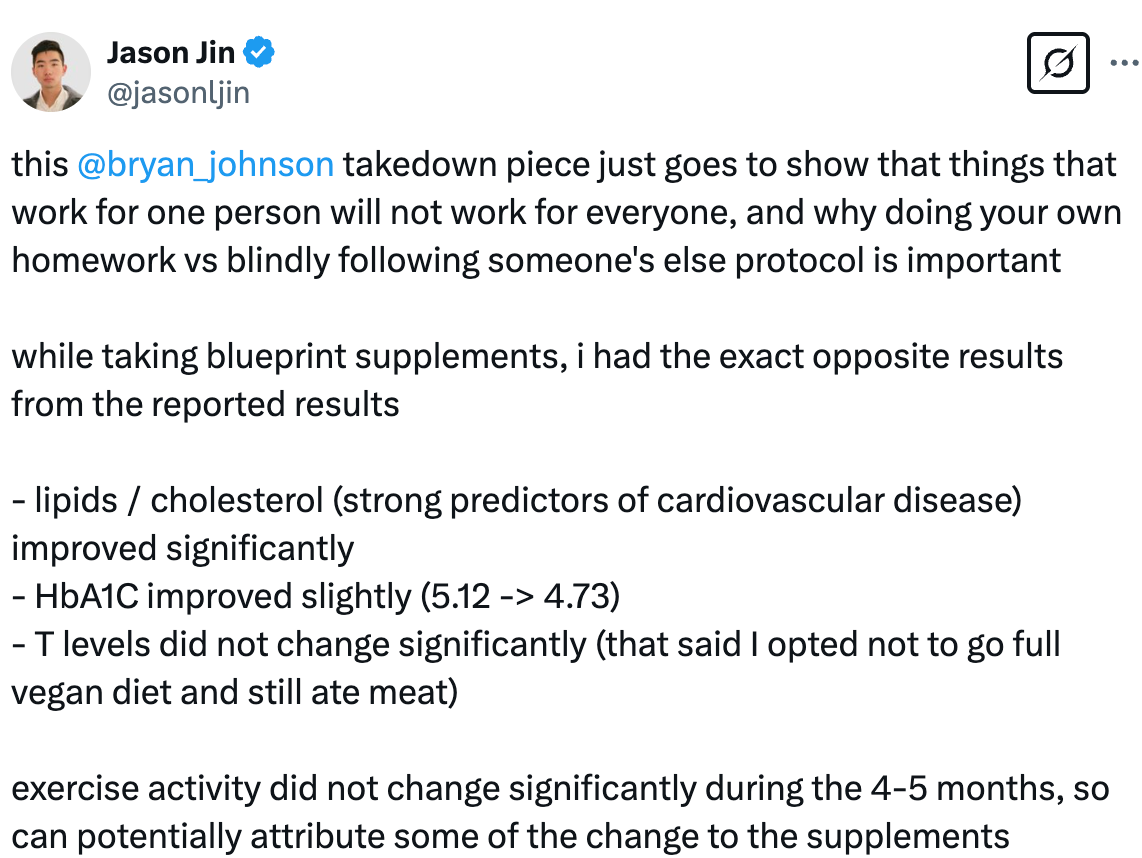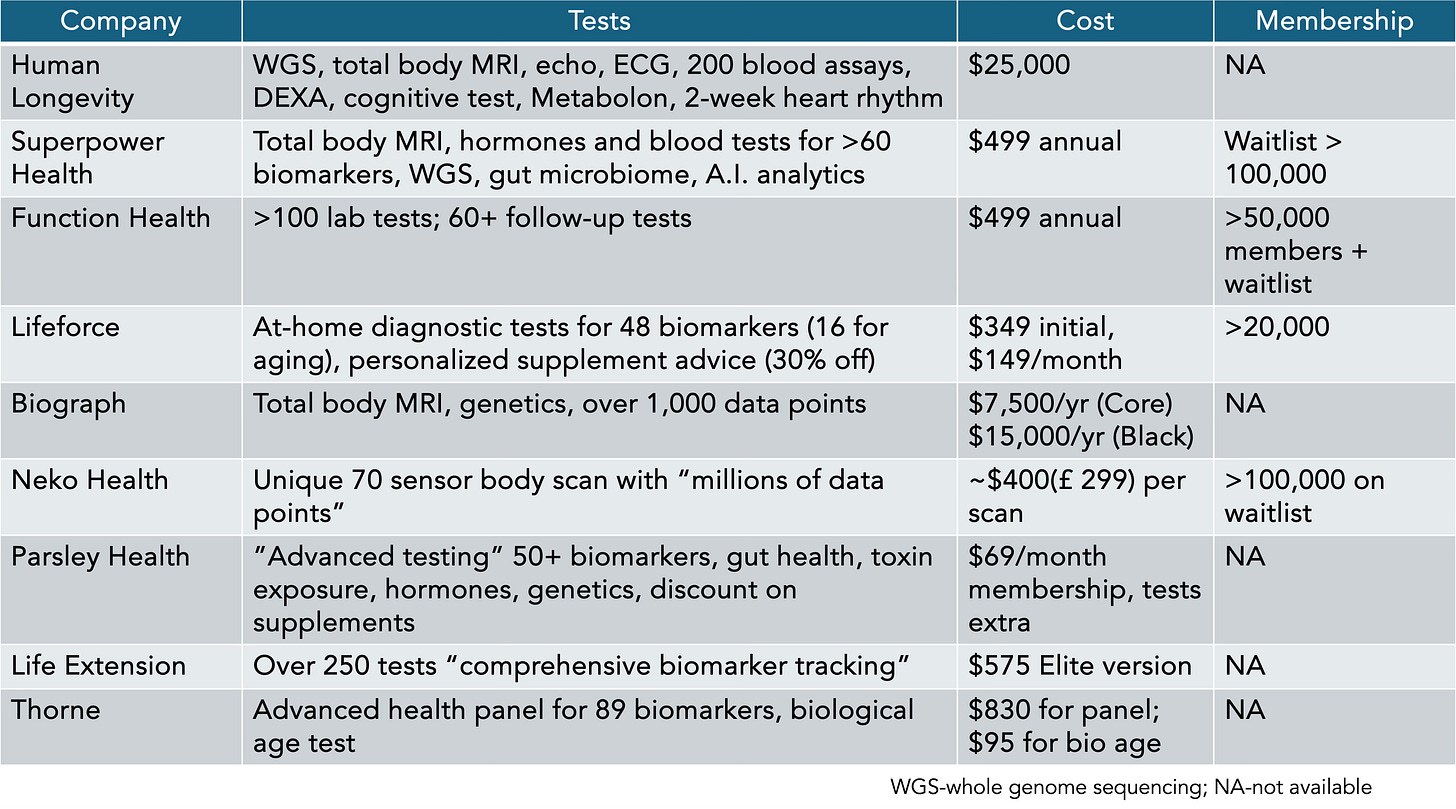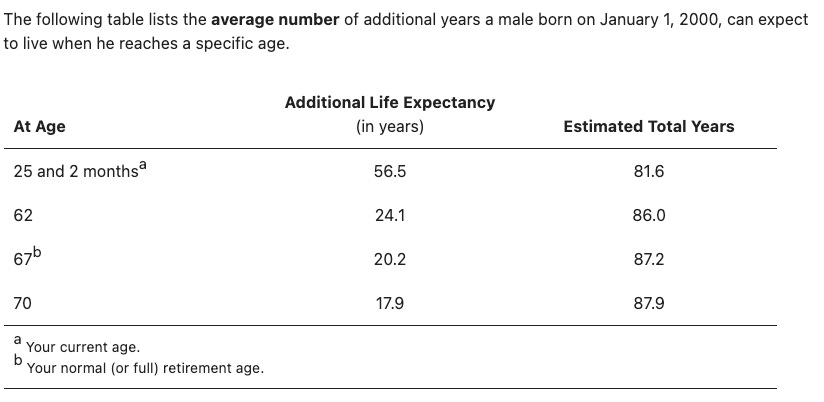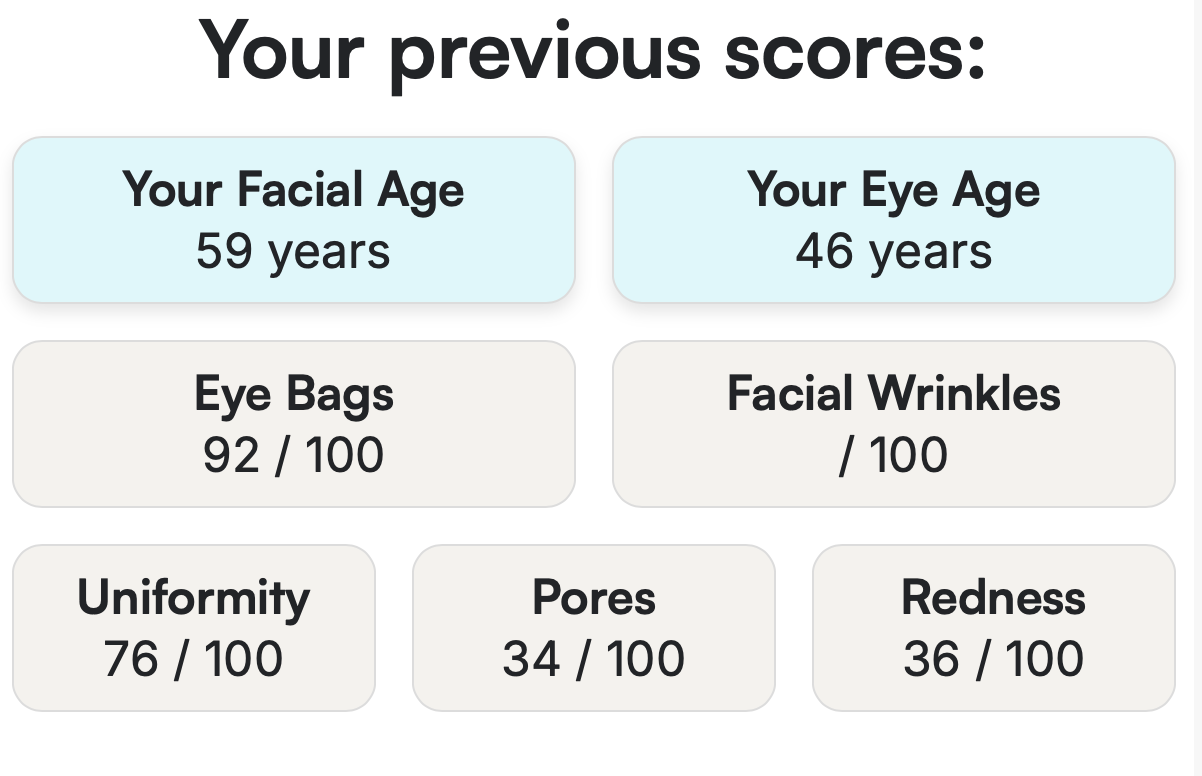Personal Science Week - 250327 Longevity
Results and fallout from Don't Die, plus more notes on anti-aging progress
We personal scientists have been following the anti-aging, longevity world for decades, long before it was the kind of thing that makes it to the cover of the Economist or lengthy reviews in the New York Times or the Wall Street Journal.
This week it’s time for an update on some of the longevity topics that have been in the news lately. As always we’re open-minded and skeptical.

We’ve been skeptical of Bryan Johnson and his Blueprint since the beginning, and now the NYTimes does a lengthy hit piece on his business dealings, based on interviews with 30 current and former employees. The main criticism seems to be that Johnson is a paranoid manager, who makes his people sign draconian legal contracts so he can sue them if they later become disloyal. That sounds bad, but just because a guy is a jerk in person doesn’t mean his cause isn’t worthwhile, right? Interestingly while Johnson took to X to respond to the NYTimes piece, he only addresses the management issues but nothing about the science. The article quotes his Netflix documentary claim that he “reversed aging” by 5 years, but says he cherry-picked that number from many others including one that showed he’d aged by 10 years. Interestingly, he doesn’t dispute the aging claim except to point to say that nobody agrees on a specific correct “bioAge” number.
Johnson published (i.e. posted an overview on X) the partial results, which shows excellent response among the participants in his Blueprint study. But note that he only shows the final results, and only for those who completed the entire course. He’s not very clear about the exact numbers, but it looks like his results are for about 300 out of the 1700 that NYTimes claims enrolled.
So what’s the big deal, Bryan? If you’re just doing this “for science”, why not publish everything: all the raw data, all the experiment details, etc. He says he can’t “for regulatory reasons”, but come on: his volunteers I’m sure would be happy to waive whatever rights that worry him, in return for him doing it all in the open.
And at least one person, our old friend Jason Jin, saw positive results and happily released his own raw data.
Meanwhile, the YouTube channel for microbiome and food advice testing company Zoe paid a visit to Bryan Johnson’s house for an hour-long conversation about longevity. I have great respect for Zoe’s chief scientist Tim Spector (whose book The Diet Myth remains one of my favorite health books), so I was surprised at the apparent endorsement of Johnson’s approach. I keep hoping for a real, rigorous scientist to dig into Johnson’s actual raw data and verify some of the claims. I know that many serious longevity scientists have offered to do a deep-dive with the raw data, but as far as I know Bryan has always refused.
Other Longevity Products
Eric Topol summarizes the top longevity and healthspan companies including Function Health (which we discussed in PSWeek240912), Peter Attia’s new Biograph, and the grand daddy all-in-one service Health Nucleus.
Although Topol is famous for his wild-eyed optimism about medical technology, he’s more reserved about these companies. His first objection (“there’s no evidence they help”) is, I think, disingenuous. There’s never any evidence—until there’s evidence. That’s the price of being at the cutting edge. But his more important concern is that, despite these offering’s attempt to be a one-stop “kitchen sink” list of biomarkers, they miss many important ones and don’t take fully into account the importance of intra-individual variability. His solution: read his upcoming book Super Agers: An Evidence-Based Approach to Longevity.
One real longevity scientist, Matt Kaeberlein, published a lengthy report this week in Scientific American. If you’ve been following the field, you won’t learn much that’s new but it’s a good refresher by a scientist worthy of respect.
More Longevity Calculators
Who cares about average life expectancy. What matters is your life expectancy, and that depends on all kinds of things like your family history, behavior, current health, and more. But one of the most important variables is … your current age.
This Social Security calculator is how the government computes your life expectancy (and your social security benefits). Here’s how it looks for a 25-year-old. Note that once he makes it to his 62nd birthday, his total life expectancy is 5 years longer than it is now. Why? Because by then he’ll have successfully avoided all the different possible ways to die early.
From WSJ:
cancer patients looked about five years older than healthy patients and looking older was linked to earlier death, researchers found in a preliminary study of FaceAge.
A free version from longevity company Novos gives a score not only for your overall face, but also for eyes, wrinkles and pores. More than 300,000 people have taken the test, says the company’s chief executive, Chris Mirabile, who hopes people will use it as a motivational tool to improve their health.
Try the FaceAge test yourself by uploading a selfie of your face. One nice thing is that they break down your score by facial features, so theoretically you can experiment with various skin treatments to see if you can improve.
Note: The company insists on emailing you the results, which means you’ll be on their (daily) mailing list for other age-related offers. I use a throwaway email account like one from Apple’s Hide My Email, though to be honest so far I’ve found the quality of the regular mails pretty high.
About Personal Science
The new AI-generated images and text documents are getting to be so good that it’s already very hard to tell what’s real and what’s not. On the other hand, the older you get the more examples you’ll find of trusted news source that turned out to be not-so-trustworthy, either out of deliberate malice or from simple human biases.
Besides, even if you can trust some seemingly-true information source, does it really matter if the news isn’t relevant to you or your family? Who cares about the nationwide price of eggs: it’s your price that matters.
Personal science is the rigorous quest for answers to questions of direct concern to our personal lives (and the lives of our loved ones). Then we use the principles of science — careful data collection, experimentation, and analysis—to get closer to the answers that really matter.
If you have other topics you’d like to cover, let us know.






